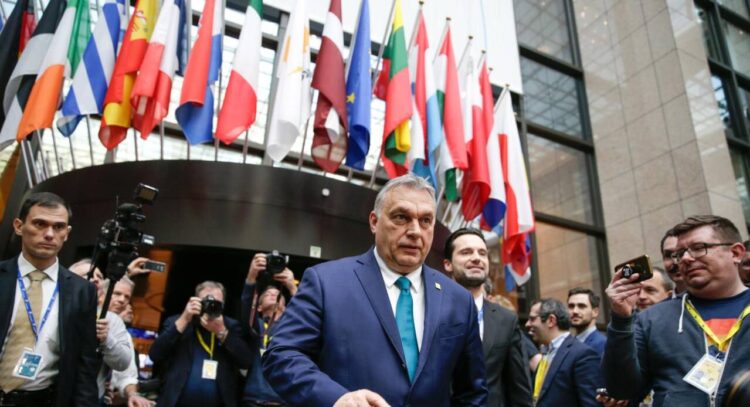The future of EU leaders hangs in the balance as the European Parliament convenes for the first time since the June elections. With a bolstered far right seeking more influence, the session is poised to be contentious. Hungary’s Prime Minister Viktor Orban, a controversial figure due to his visits to Russia and China, was scheduled to address the parliament, but his speech was postponed due to a busy voting schedule.
The 720 lawmakers starting their five-year term face significant challenges, including a stagnant economy and global uncertainty, all while war rages near Europe’s borders. European Commission President Ursula von der Leyen’s future is a key focus, as lawmakers vote on her potential reappointment later this week.
On Tuesday, Members of the European Parliament (MEPs) will vote for the president of the parliament in Strasbourg, with current speaker, Maltese conservative Roberta Metsola, expected to secure another term. However, the critical vote occurs on Thursday, determining whether von der Leyen will continue as commission chief. Despite securing a hard-fought deal on her candidacy in late June, von der Leyen must navigate the complex political landscape to win over lawmakers from various groups.
Von der Leyen’s challenge is compounded by the need to balance the EU’s climate agenda with demands from MEPs who seek fewer environmental regulations. The far right, which gained ground in the June elections, presents another obstacle. Although the centrist coalition, comprising the conservative European People’s Party (EPP), Socialists, Democrats, and Liberals, remains the largest group, the rise of far-right factions complicates the parliamentary dynamics.
The new parliament will also elect 14 vice presidents. The political makeup has grown more complex, with two far-right groups increasing their numbers. The European Conservatives and Reformists, dominated by Italian Prime Minister Giorgia Meloni’s party, and the newly formed Patriots for Europe, created by Orban and including France’s National Rally, are vying for greater influence.
The presence of controversial figures within the far-right factions has drawn a strong response from the centrist coalition, which aims to prevent these groups from gaining prominent positions. Patriots spokesperson Alonso de Mendoza criticized the mainstream parties’ “cordon sanitaire” strategy as undemocratic.
Analyst Elizabeth Kuiper highlighted the evolving situation, noting that the refusal to cooperate with the far right and von der Leyen’s fate are closely linked, with several groups opposing the radical right’s influence.

















Comments